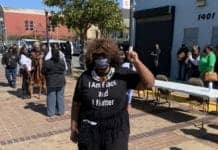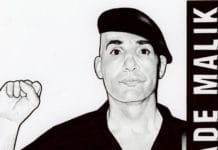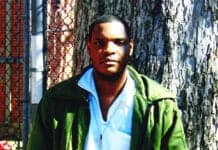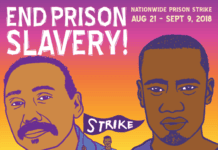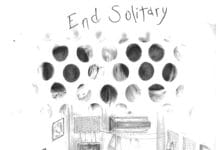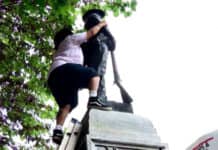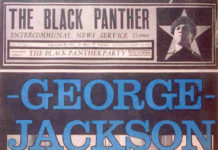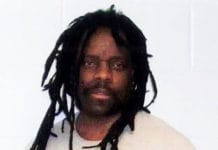by Eugene Thomas

Here’s the truth – a slogan, a battle cry: “Oppression is worse than slaughter.” This saying is part of a quote from the Holy Quran that aptly applies to the conditions found out in Pelican Bay, Corcoran and several other prisons that hold prisoners in notorious SHU units in California.
On Sept. 26, prisoners in Pelican Bay State Prison re-embarked on an indefinite hunger strike, continuing to protest the conditions of confinement, human rights violations and unjust institutional gang policies until those conditions, violations and policies are changed.
Many – if not the majority – of these brothers have just come off and are just healing and strengthening up from the first hunger strike that commenced July 1. And several others haven’t healed as of yet. I’m wondering if we really understand how tortuous the conditions in Pelican Bay, Corcoran etc. are. These brothers, in a communiqué, have informed the people and the public that they intend to strike until conditions change – or they die!
I’m wondering if we really understand how tortuous the conditions in Pelican Bay, Corcoran etc. are. These brothers, in a communiqué, have informed the people and the public that they intend to strike until conditions change – or they die!
When I read those words, my thoughts turned to my reading of a book entitled “Ten Men Dead” by David Beresford. It is the story of 10 Irish prisoners in Long Kesh prison, infamously known as “The Maze.” These men were all part of different political groups but were all Irish and all prisoners. They were fighting for the British Crown to recognize them as political prisoners and not common criminals.
To gain such recognition they staged numerous protests before orchestrating the world known hunger strike. To be sure, there was the blanket protest, in which they refused to wear prison uniforms and thus wrapped themselves in blankets. Then there was the dirty protest. This protest was when they smeared feces all over the walls, all to get oppressive, colonial Great Britain to recognize them as political prisoners.
From those protests came the hunger strike. This hunger strike resulted in them being recognized as political prisoners and with members of their organizations being seated in Parliament, but at a cost unbelievable. That cost was in lives – 10 lives. Ten men had to die. These 10 men starved themselves to death. One after another took their protest to the grave as an uncaring British government and a shocked public watched. And this wasn’t eons or a millennium nor even 50 years ago. This was in 1981, just 30 years ago.
The prison hunger strike in Ireland 30 years ago resulted in them being recognized as political prisoners and with members of their organizations being seated in Parliament, but at a cost unbelievable. That cost was in lives – 10 lives. Ten men had to die.
If we were to read that book, we could learn a lot in regards to how we can support our hunger strikers. We learn that concomitant with their strike, out in the public the people that supported the Irish hunger strikers were rallying, picketing, campaigning, bombing, sabotaging and shooting their way into Parliament so that these prisoners would be recognized as political prisoners and not common criminals.

Legendary Irish political prisoner Bobby Sands said he admired and studied George Jackson.
George Jackson, public enemy number one according to the California Department of Corruption, is the major figure used to validate many of the Black prisoners in the Pelican Bay and Corcoran secure housing units. The state has labeled the brothers as gang members, belonging to an alleged gang founded by George Jackson. These are New Afrikan brothers I speak of are emphatically not gang members but are political students who “stand firm” in their views and convictions.
We’ve just celebrated and commemorated the life, work and assassination of George Jackson this past August. It has been 40 years since George Jackson was assassinated and 30 years since the Irish brothers went on their hunger strike.
I end with a quote from George Jackson speaking of the desperate man: “To be denied or rejected means less to this man but never nothing, and if he is healthy of mind he knows he can’t be practical, he can’t afford practicality. His have-nothing status, the absence of the all important controls, predisposes him to impracticality. He can never relax. He is or becomes the desperate man. And desperate men do desperate things, take desperate positions. When revolution comes, he is the first to join it. If it doesn’t come, he makes it” (“Soledad Brother,” p. 321).
Let us understand, see and feel these brothers’ desperation and become desperate with them. Do what needs to be done, sisters and brothers. Let us discover our humanity and our love in revolution.
Send our brother some love and light: Eugene Thomas, 67488, G-2, Autry State Prison, P.O. Box 648, Pelham GA 31779.

 Store
Store



